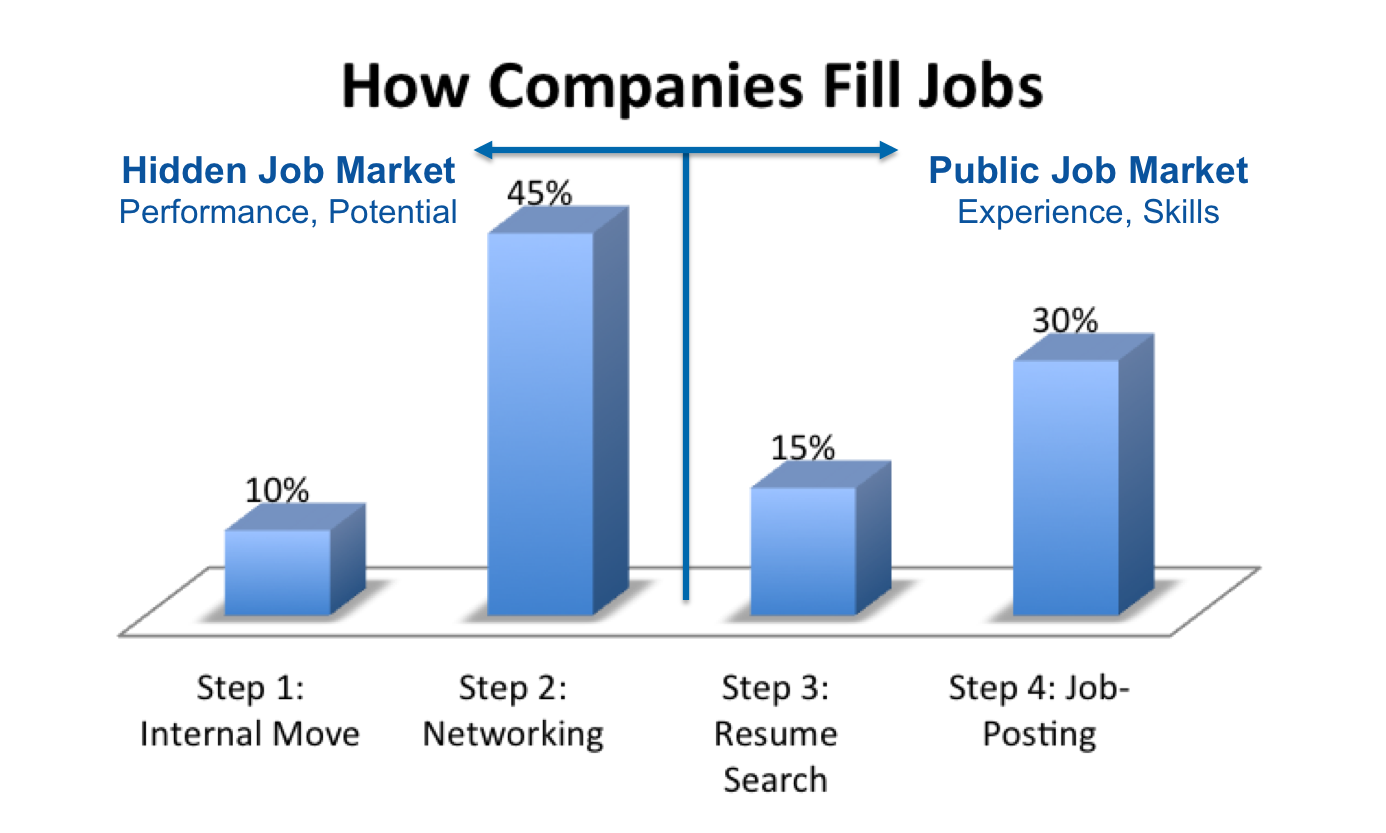
by tomnora | Jun 13, 2013 | Angel Investor, Business Development, early stage, Hawaii, Hiring, Jobs, Scalability
I’m building my own job hunting tool to try to fix the broken inefficient systems currently out there. I was interviewed by Forbes recently and asked to comment on the job hunting process and my opinion of applying online to jobs. Here’s an excerpt of my answers…
Great topic. The market has shifted in several ways – automation, obsession with young malleable low cost employees and the current bad economy – these factors have rendered the online job boards obsolete. Remember, job boards and online hiring were invented almost 20 years ago and popularized by Monster. Machines took over the process and proved to be a weak substitute for humans. The only major innocations since then are automatic resume reders which harm as much as they help.
Many article point out that networking and referrals are the most effective ways to get hired, and I tend to agree. There are many human emotions, loyalties, friendships, favors, proximities, etc. that have more weight than what resonator tells an HR person. There is also a lot of campaigning – with a weak economy and ineffective government help people want to help others that they know to get hired and survive all this. They for their cousin or friend or roommate for that job paying 80K plus benefits.
Online job systems assume the most important factor in hiring is qualifications, and that is far from the truth. The top factors are familiarity, recommendations, in-person meetings, personal prejudices and empathy. Many under-qualified get hired every day over better candidates. The bad economy amplifies that. Just look at acqi-hiring or the San Francisco tech ecosystem.
The way computers and social media and machine learning are used to streamline the hiring process must change and augment reality as it is today, not try to alter it. @tomnora
by tomnora | Dec 12, 2012 | Angel Investor, Business Development, CEO Succession, startup CEO, stereo, Tom Nora
INC 500 CEOs are paid much less than Fortune 500. Is this gap closing?
Infographic: Which CEOs Are More Social? | CEO.com.
by tomnora | Nov 20, 2012 | Business Development, CEO Succession, early stage, founder, Scalability, startup CEO, Tom Nora, venture
The median private company CEO compensation package totaled $362,900 in 2011 — just 3.8% of the $9.6 million median compensation package given to S&P 500 CEOs.
Median total compensation for private company CEOs increased only 1.9% from 2010’s $356,133.
The Board of Directors sets CEO pay in 58.5% of all private companies, but for companies with $100 million or more in annual revenue, this number increases to 73.9%.
Only 54.4% of private companies have formal long-term incentive plans for executives, but this number increases to over 68% for companies backed by private equity investors. There is high correlation between a company’s profitability and whether or not they have formal long term incentive plans for executives.
J.P. Donlon
Editor-in-Chief
Chief Executive�Magazine
by tomnora | Sep 15, 2011 | Business Development, early stage, founder, Launch, Revenue Growth, Scalability, startup, startup CEO, venture
http://sfist.com/attachments/sfist_jeremy/garage.jpg
Many dream of being the instigator or part of the “Startup Launch”: First Discussions, Initiation, Developing a business and product(s), and most of all Success. What many dreamers don’t realize is that all of these steps are the by-product of the core reason the startup is being formed – a great product or service. It’s not a TV show where Ashton Kutcher claims he’s an “Internet billionaire” and no one questions it; in the real world great startups become great companies by focusing on Execution of ideas into products and services. A startup becomes a sustainable enterprise by repeating the process over and over.
An idea in itself isn’t worth much, and this applies to the tech world more so than most other segments of industry. Because of the vast amounts of publicity lavished on Mark Zuckerberg, Steve Jobs, and the Google twins, many fashion themselves as making a few key steps and then finding themselves on the cover of Time, or at least in a million dollar home.
I often encounter people who have great tech ideas – friends, colleagues, employees, neighbors. Many are very good ideas; almost all of them drift away into the ether, unless someone else executes one of them. Then my friend will inevitably say “I had that idea! They ripped me off!” Or they tell me that I should execute their idea and then give them a percent of the “winnings”.
Ideas without execution are just talk, I’m a culprit also, for many reasons. I used to try to explain this to people when they approach about a tech idea, but it usually just bursts their bubble and they don’t quite hear the message. The act of execution tests whether the idea can become more – it causes validation, formation, proof of concept, exposes fatal flaws, creates adjustments, essentially turns it into reality or the discard pile. This process IS the company, extremely important and often misunderstood.
There are countless examples of startups that begin as one thing then morphed into something different – HP, arguably on of the first Silicon Valley garage startups, was first successful with an audio oscillator, which they built after very little planning or product thought. Their process was correct.
So your original idea is likely to change some anyway through the process. Other people will help take it over the line; welcome them. So please contact me if you’re anywhere along the startup road, and Ill try to help you turn your ideas into things that the world wants.
personal: @tomnora
business: @cowlow

by tomnora | Aug 30, 2011 | Business Development
People often undervalue Business Development as a critical function in a startup. What is it? How does it differ from Sales, Marketing, Major Accounts? When is the startup big enough to dedicate a headcount to Business Development?
BusDev is less understood than most titles, and widely ranging in responsibilities. It is the critical glue between sales functions and the senior management. BusDev is relationships, longer term thinking, non-revenue partnerships, communication between Sales, Marketing, Engineering and Finance if you have all of those covered.
BusDev people see the potential connections between your company and several others. They find creative ways to do business or vastly improve business relationships, especially when they can work with BusDev counterparts at target partners. It’s like the 2 lead guitarists of 2 bands playing together going off into the corner and working on just their parts, and relationship. They’re focused on one thing.
BusDev people are also focused on one thing –– taking the businesses beyond simple linear transaction based relationships. They don’t worry about this weeks revenue or finance, etc.
In a smaller or earlier stage startup, the CEO covers most areas that have no dedicated leader, BusDev being the most common unfilled spot. Sometimes this works but often not. The problem is when the CEO is not a good match for this position – in experience, skill set or desire. It also distracts him/her from other CEO functions, and is not as impressive to the client, partners.
So, if you can afford a strong BusDev investment early, it can be a secret weapon that ensures your long term scalability and gets you funded.
Contact me if you’d like to discuss more.

